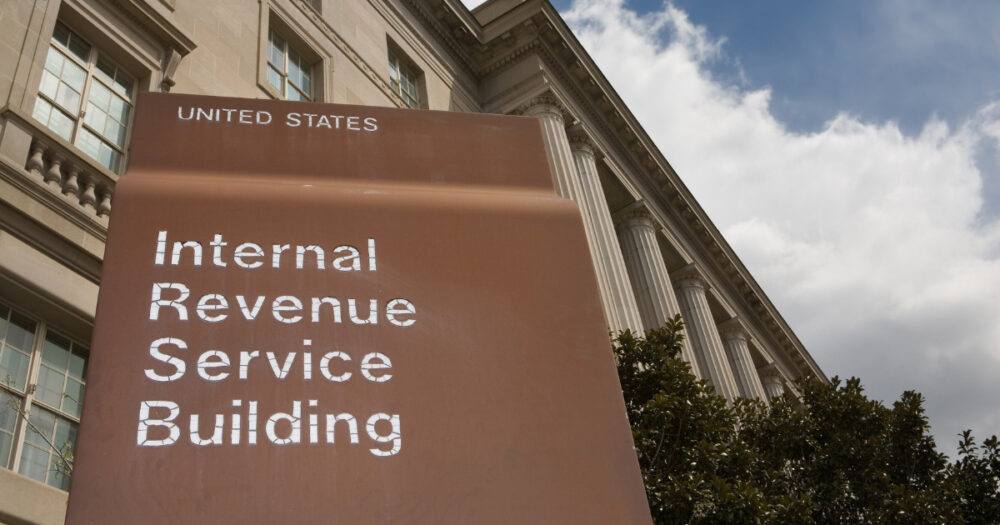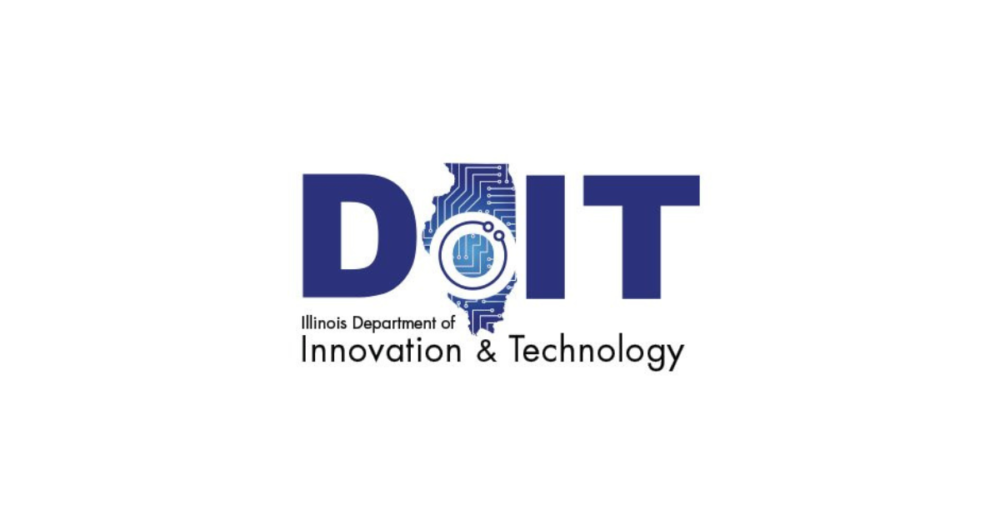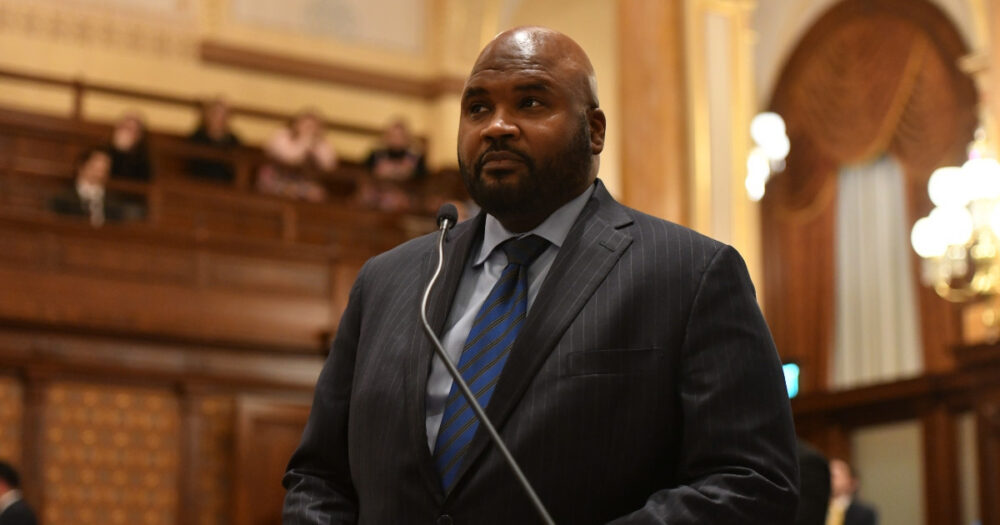With the Internal Revenue Service making substantial progress in the ongoing effort related to the Employee Retention Credit claims, Commissioner Danny Werfel said the agency has entered a new phase of increasing scrutiny on dubious submissions while renewing consumer warnings against aggressive marketing.
Speaking Tuesday at a special roundtable session of tax professionals in Atlanta, Werfel noted the IRS has shifted efforts after successfully clearing the backlog of valid Employee Retention Credits (ERC) claims. Now, the agency is intensifying compliance work and putting in place additional procedures to deal with fraud in the program.
Werfel told a group of tax professionals dealing with fall-out from aggressive ERC claims that the IRS has increased audit and criminal investigation work on these claims, both on the promoters as well as those businesses filing dubious claims.
“The further we get from the pandemic, we believe the percentage of legitimate claims coming in is declining,” Werfel told attendees at the IRS Nationwide Tax Forum in Atlanta. “Instead, we continue to see more and more questionable claims coming in following the onslaught of misleading marketing from promoters pushing businesses to apply. To address this, the IRS continues to intensify our compliance work in this area.”
The Employee Retention Credit, also sometimes called the Employee Retention Tax Credit or ERTC, is a tax credit enacted to help businesses during the pandemic that was subsequently amended three times by Congress. Many businesses legitimately apply for the credit, but aggressive marketing has overshadowed the program. The period of eligibility for the credit for affected businesses is very limited, covering only between March 13, 2020, and Dec. 31, 2021.
Under the current law, businesses can typically continue to file claims for the credit until April 15, 2025. That raises future concerns, Werfel said.
“The amount of misleading marketing around this credit is staggering, and it is creating an array of problems for tax professionals and the IRS while adding risk for businesses improperly claiming the credit,” Werfel said. “A terrible scenario is unfolding that hurts everyone involved — except the promoters.”
“This was not how the law was meant to work, and Congress can help with this situation,” Werfel added. “We will work with Treasury to explore legislative solutions we can share with Congress to help address fraud and error, including potentially putting an earlier ending date for businesses to claim the credit and increase IRS oversight of return preparers.”
The IRS continues to urge businesses, tax-exempt organizations and others considering applying for this credit to carefully review the official requirements for this limited program before applying. In the meantime, the IRS continues to intensify compliance activities involving ERC claims.
With more than 2.5 million claims coming in since the program was enacted IRS claims processing slowed due to the complexity of the amended returns. The IRS has made substantial progress on these claims this year, with 99 percent of claims approximately three months old as of mid-July. The additional effort has been critical in helping legitimate businesses receive the money they can claim legally under the law.
However, the IRS has growing concerns about scams and potential fraud within the ERC program given the troubling increase in false and misleading public advertisements and scams taking advantage of taxpayers.
The IRS has trained auditors examining ERC claims posing the greatest risk, and the IRS Criminal Investigation division is working to identify fraud and promoters of fraudulent claims.
The IRS reminds anyone who improperly claims the ERC that they must pay it back, possibly with penalties and interest. A business or tax-exempt group could find itself in a much worse cash position if it has to pay back the credit than if the credit was never claimed in the first place. So, it’s important to avoid getting scammed.
When properly claimed, the ERC is a refundable tax credit designed for businesses that continued paying employees during the COVID-19 pandemic while their business operations were fully or partially suspended due to a government order or that had a significant decline in gross receipts during the eligibility periods. The credit is not available to individuals.
To help tax professionals and others, the IRS continues to provide additional legal clarity around ERC rules. On July 20, the IRS issued a legal advice memorandum applying the statutory requirements to five different scenarios. The memorandum highlighted that employers experiencing supply chain disruptions qualify for ERC only if they had to suspend their business operations because their suppliers were unable to provide critical goods or materials due to a government order that caused the supplier to suspend its operations. Contrary to advice given by unscrupulous preparers, this guidance makes clear that supply chain disruptions do not qualify an employer for the credit unless they are due to a government order.
Werfel told Tax Forum participants the IRS remains deeply concerned about the impact of the ERC on tax professionals who are doing the right thing while their clients are being lured by aggressive marketing claims.
“Hard-working tax professionals who play by the rules see their clients go elsewhere, lured by false promises and wild exaggerations,” Werfel added. “The resulting number of claims prevents the IRS from doing other priority work. But the biggest risk is being taken by the promoters pushing these schemes and businesses filing these claims. This is an area where we urge caution; those improperly claiming the credit could face follow-up action from the IRS.”
Warning signs of aggressive ERC marketing
There are important tips that people should be wary of involving the Employee Retention Credit. Warning signs to watch out for include:
- Unsolicited calls or advertisements mentioning an “easy application process.”
- Statements that the promoter or company can determine ERC eligibility within minutes.
- Large upfront fees to claim the credit.
- Fees based on a percentage of the refund amount of Employee Retention Credit claimed. This is a similar warning sign for average taxpayers, who should always avoid a tax preparer basing their fee on the size of the refund.
- Preparers refusing to sign the ERC return being filed by the business, exposing just the taxpayer claiming the credit to risk.
- Aggressive claims from the promoter that the business receiving the solicitation qualifies before any discussion of the group’s tax situation. In reality, the Employee Retention Credit is a complex credit that requires careful review before applying.
- The IRS also sees wildly aggressive suggestions from marketers urging businesses to submit the claim because there is nothing to lose. In reality, those improperly receiving the credit could have to repay the credit – along with substantial interest and penalties.
Unscrupulous promoters may lie about eligibility requirements, including refusing to provide detailed documents supporting their computations of the ERC. In addition, those using these companies could be at risk of someone using the credit as a ploy to steal the taxpayer’s identity or take a cut of the taxpayer’s improperly claimed credit.
How the promoters lure victims
The IRS continues to see a variety of ways that promoters can lure businesses, tax-exempt groups and others into applying for the credit.
- Aggressive marketing. This can be seen in countless places, including radio, television and online as well as phone calls and text messages.
- Direct mailing. Some ERC mills are sending out fake letters to taxpayers from the non-existent groups like the “Department of Employee Retention Credit.” These letters can be made to look like official IRS correspondence or an official government mailing with language urging immediate action.
- Leaving out key details. Third-party promoters of the ERC often don’t accurately explain eligibility requirements or how the credit is computed. They may make broad arguments suggesting that all employers are eligible without evaluating an employer’s individual circumstances.
-
- For example, only recovery startup businesses are eligible for the ERC in the fourth quarter of 2021, but promoters fail to explain this limit.
- Also, the promoters may not inform taxpayers that they need to reduce wage deductions claimed on their business’ federal income tax return by the amount of the Employee Retention Credit. This causes a domino effect of tax problems for the business.
- Payroll Protection Program participation. In addition, many of these promoters don’t tell employers that they can’t claim the ERC on wages that were reported as payroll costs to obtain Paycheck Protection Program loan forgiveness.
How businesses and others can protect themselves
The IRS reminds businesses, tax-exempt groups and others being approached by these promoters that there are simple steps that can be taken to protect themselves from making an improper Employee Retention Credit.
- Work with a trusted tax professional. Eligible employers who need help claiming the credit should work with a trusted tax professional; the IRS urges people not to rely on the advice of those soliciting these credits. Promoters who are marketing this ultimately have a vested interest in making money; in many cases they are not looking out for the best interests of those applying.
- Request a detailed worksheet explaining ERC eligibility and the computations used to determine the ERC amount.
- Don’t apply unless you believe you are legitimately qualified for this credit. Details about the credit are available on IRS.gov, and again a trusted tax professional – not someone promoting the credit – can provide critical professional advice on the ERC.
To report ERC abuse, submit Form 14242, Report Suspected Abusive Tax Promotions or Preparers. People should mail or fax a completed Form 14242, Report Suspected Abusive Tax Promotions or Preparers, and any supporting materials to the IRS Lead Development Center in the Office of Promoter Investigations.
Mail:
Internal Revenue Service Lead Development CenterStop MS504024000 Avila RoadLaguna Niguel, California 92677-3405Fax: 877-477-9135
Properly claiming the ERC
There are very specific eligibility requirements for claiming the ERC. These are technical areas that require review. Employers can claim the ERC on an original or amended employment tax return for qualified wages paid between March 13, 2020, and Dec. 31, 2021. However, to be eligible, employers must have:







